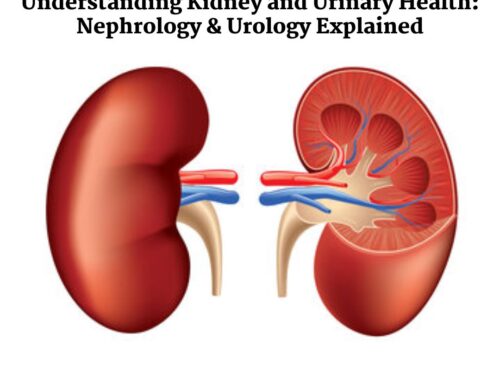Introduction: Why Creatinine Levels Are Crucial for Kidney Health
Your creatinine levels serve as one of the most important indicators of kidney function. When your kidneys are healthy, they filter out creatinine from your blood, which is then excreted in your urine. But when kidney function declines, creatinine builds up in the bloodstream. This increase in creatinine levels signals potential kidney issues. Understanding the relationship between creatinine levels and kidney health is crucial for detecting early signs of kidney disease, such as Chronic Kidney Disease (CKD). In this blog, we’ll explore what creatinine is, how it relates to kidney health, why it’s important, and how treatments like Sevelamer Carbonate can help manage kidney health.
What is Creatinine and How Does it Impact Kidney Health?
Creatinine is a waste product that forms when your muscles use energy. This waste is filtered out of the blood by your kidneys. When kidney function declines, creatinine accumulates in the bloodstream, signaling kidney dysfunction. Doctors often use creatinine levels as one of the first tests to assess kidney health. Elevated creatinine levels may indicate the presence of Chronic Kidney Disease (CKD) or other kidney-related problems. Regular monitoring of your creatinine levels helps you stay on top of kidney health.
Normal Creatinine Levels and What They Mean for Your Kidney Health
Creatinine levels vary based on factors such as age, gender, and muscle mass. Here’s a quick guide to normal ranges for creatinine levels:
-
Men: 0.74 to 1.35 mg/dL
-
Women: 0.59 to 1.04 mg/dL
-
Children: 0.3 to 0.7 mg/dL
If your creatinine level exceeds the normal range, it may indicate kidney dysfunction. Elevated creatinine could be an early sign of Chronic Kidney Disease (CKD). Monitoring creatinine regularly helps identify any potential issues before they escalate.
What Causes High Creatinine Levels and Kidney Dysfunction?
High creatinine levels usually point to one of the following causes:
-
Chronic Kidney Disease (CKD): Reduced kidney function leads to the build-up of waste products like creatinine in the blood.
-
Dehydration: Dehydration reduces kidney function, leading to elevated creatinine levels.
-
High-Protein Diet: Eating large amounts of protein can temporarily increase creatinine levels.
-
Intense Exercise: Excessive physical activity can cause a spike in creatinine due to muscle breakdown.
-
Medications: Certain drugs, such as NSAIDs and antibiotics, can also increase creatinine levels by putting strain on the kidneys.
If your creatinine levels remain high, consult a doctor to determine the cause and get the appropriate treatment.
Common Signs of Kidney Problems You Shouldn’t Ignore
While high creatinine levels often serve as a red flag, kidney problems don’t always show symptoms in the early stages. However, as kidney health declines, you may notice the following:
-
Swelling: Especially in the feet, ankles, or around the eyes.
-
Fatigue: Feeling unusually tired without a clear reason.
-
Shortness of Breath: Difficulty breathing during light activities.
-
Nausea or Vomiting: Persistent nausea without any other explanation.
-
Changes in Urination: More frequent urination, especially at night, or a decrease in urine output.
Tip: Regular testing of your creatinine levels and eGFR (estimated glomerular filtration rate) helps detect kidney issues early and allows for timely treatment.
The Link Between Creatinine, Phosphorus, and Chronic Kidney Disease (CKD)
As CKD progresses, kidneys lose their ability to regulate phosphorus levels. Elevated phosphorus in the blood, known as hyperphosphatemia, can cause serious complications like bone damage, cardiovascular disease, and worsening kidney function. Managing both creatinine and phosphorus levels is crucial for CKD patients, especially those undergoing dialysis. That’s where phosphate binders like Sevelamer Carbonate come into play.
How Sevelamer Carbonate Supports Kidney Health and Phosphorus Regulation
Sevelamer Carbonate is a phosphate binder used to help CKD patients manage high phosphorus levels. Here’s how it works:
-
Sevelamer binds with phosphorus in your food.
-
Prevents phosphorus absorption into your bloodstream.
-
Regulates phosphorus levels, helping prevent complications like bone disease and cardiovascular issues.
Unlike other phosphate binders, Sevelamer Carbonate doesn’t raise calcium levels, making it a safer option for people with heart or bone concerns.
Benefits of Sevelamer Carbonate for CKD Patients
Doctors recommend Sevelamer Carbonate for managing phosphorus in CKD patients for several reasons:
-
Reduces phosphorus levels: Prevents complications like bone disease and heart problems.
-
Does not raise calcium: Safer for heart and bone health.
-
May lower cholesterol: Some studies suggest that it can help reduce cholesterol levels.
-
Simple to use: Available in tablet form, taken with meals.
For patients on dialysis or those with severe CKD, Sevelamer Carbonate can improve kidney health and overall quality of life.
How to Support Healthy Creatinine Levels with Lifestyle Changes
While medications like Sevelamer Carbonate help, lifestyle changes also play a critical role in maintaining healthy creatinine levels. Here are some practical tips to support your kidney health:
-
Stay Hydrated: Drink enough water, but avoid overhydrating.
-
Limit Protein Intake: A high-protein diet can strain the kidneys, especially for CKD patients.
-
Exercise Moderately: Avoid excessive strain on your muscles by exercising at a comfortable pace.
-
Avoid Harmful Medications: NSAIDs and certain over-the-counter painkillers can harm the kidneys.
-
Eat a Kidney-Friendly Diet: Focus on foods low in sodium, phosphorus, and potassium.
Tip: Always talk to your doctor before making any major changes to your diet or medication regimen.
When to Consult a Doctor About Your Creatinine Levels
If your creatinine levels are consistently high or you notice symptoms like swelling, fatigue, or changes in urination, consult a nephrologist. Early intervention is key in managing Chronic Kidney Disease (CKD) and avoiding more serious kidney problems.
Quinek’s Commitment to Affordable Kidney Care Solutions
At Quinek Lifesciences, we’re committed to providing high-quality, affordable nephrology products to support kidney health. Our formulation of Sevelamer Carbonate helps patients manage phosphorus levels effectively, improving the lives of people living with Chronic Kidney Disease (CKD) and those undergoing dialysis.
Final Thoughts: Understanding Creatinine Levels and Kidney Health
Creatinine levels provide valuable insights into kidney function. Monitoring and managing these levels, along with making lifestyle adjustments and using treatments like Sevelamer Carbonate, can help maintain kidney health and prevent further damage.
Key Takeaways:
-
Creatinine levels are essential markers of kidney health.
-
Elevated creatinine signals potential kidney dysfunction or CKD.
-
Sevelamer Carbonate helps regulate phosphorus levels in CKD patients.
-
Lifestyle changes combined with medication improve kidney function and long-term health outcomes.




